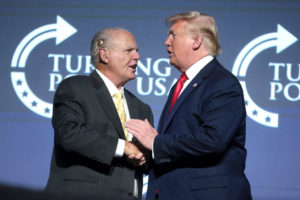This is only the second time I’ve written about Bitcoin. I have friends who have done very well off it, and Bitcoin’s fans are fanatical about it. This post will probably get more hate than everything else I’ve written combined.
The reason they’re fanatical is that it’s made many of them filthy rich, for doing nothing but being a first mover and HODLing (holding.)
Bitcoin’s original selling-proposition was a good one: peer-to-peer money; cut out the middleman. This is something which needs to be done, because the middlemen regularly abuse their power by shutting people they don’t approve of out of the system. This is true on the national levels, with sanctions, and true on the individual and corporate level. I remember when Visa, Matercard and PayPal all cut off Wikileaks, for example (long before 2016). They regularly cut access off from companies selling legal goods they don’t like (for example, various nootropics, or soft-porn.)
So a way of getting past these gatekeepers, whether sovereign or corporate, is needed, as those gatekeepers regularly abuse their power.
The problem is, to quote Stirling Newberry, that the bitcoin is the worst way to do something necessary. It has massive transaction costs, in terms of energy, and thus is bad for the environment. But, as money, it is reactionary money: it was designed to have 21 million bitcoins max, with less produced over time (halving rewards).
What this means is it vastly rewards early-movers. The sooner you got in, the more money you made. The people who made the right decision in the past, control the future, much as the families who were rich in Florence in the 15th century are rich today.
This would be great if making one important decision good for yourself meant you would always make good decision in the future that were also good for other people. Money is power and people with more money have more power. Bitcoin creates a new power bloc: those who got in early.
There’s no reason, however, to assume one good decision for yourself means you will make future good decisions that are also good for other people. (At the extreme end, Genghis Khan says hi, and so does every other successful conqueror. So do the people who crashed the world economy in 08, but got bailed out.)
Bitcoin is deflationary: it gains value over time (assuming it doesn’t crash). Deflationary money is not good money. It restricts what can be done with it, rewards dead money (people who just sit on what they have), and empowers (again) people who won the past, not people who are doing good things in the present.
There is also the matter that bitcoin isn’t acting like money. It’s acting like a speculative resource bubble, which is because it is a speculative resource bubble. Making bitcoin is called “mining” for a reason: it was modeled after gold, except that unlike gold, you can’t find more of it once it’s done. It was designed to be GoldPLUS, for people who want to win once and be secure forever.
Its other great feature (which is fool’s gold) is that it can be used to bypass government restrictions. Or so fools think, since it’s a blockchain and every single transaction is recorded. Do NOT use bitcoin to pay for anything the government might one day want to track you down over. Use cash or a cryptocurrency engineered for privacy.
The question here is what’s going to happen when BTC is mostly mined out (mining the last block may take quite some time but it will be mined out before that. Twenty-one million coins can be mined, of that 18.5 have been mined.)
What happens to the value when the first mover advantage is gone? When it’s “mined out?”
Well, that depends on if there’s a genuine use-case. Is it a functional peer-to-peer payments system which lets you bypass both censorship and high fees? Right now, bitcoin is slower than many normal transactions. When mining ends, fees are expected to go up (since miners currently subsidize them while mining) and it isn’t actually anonymous money: in fact, given the ledger that permanently records every transaction, it’s almost perfectly engineered to be a totalitarian technology.
That said, what I see possibly happening is that it does stick around. Paypal is bringing it online, for example. Most people don’t hold much BTC in this future, they simply use BTC as a transaction medium, renting it, in effect, from the big HODLers. The lightning network also promises to speed up and cheapen transactions, there can be fixes to the transaction issues.
The other possibility is that once it’s no longer possible to get rich, we find out this is a bubble and a ponzi scheme. The first movers who were smart enough to cash out along the way do great and the bubble bursts. (If I were a big HODLer I’d hedge: cash out about half and buy off-chain assets, keep the rest in case BTC sticks around as infrastructure.)
Much of this depends on legal status and institutional support. Contrary to what a lot of BTC maximalists think, BTC can absolutely be shut down if enough big governments decide to do so. Set the forensics on the transaction chains and make its use illegal, subject to penalties or even jail time and yeah, that will destroy much of the value. It’s only a store of value if you can turn it into real world goods. If you can’t, it’s just a digital asset, worth less than a high level MMORPG character.
All that aside, the main issue is, again, that it’s reactionary money, intended to create a new class of winners who are then protected by the fact that they got in early enough, by the design of the coin itself.
It’s why BTC worked: because it was designed to create a protected asset class that rewarded first movers. The utopian stuff is overstated (because of the ledger). BTC is a greed project dressed up in idealist clothes, which doesn’t mean many people don’t genuinely believe its utopian promise. (Much as big capitalists constantly say how wonderful capitalism is for everyone and how they deserve to be rich because they make life better for everyone.)
All that said, I like a lot of BTC people I know and if it’s something of a scam, well, it’s not one-one hundredth as bad as what Wall Street does every day. In a world where almost all fortunes are illegitimate, based on scams or hurting other people, BTC at least gave some people outside the usual class a chance to get rich or make a bit of extra money.
All the content here is free, but subscriptions and donations do help, a lot.
 Stirling Newberry explained the concept of a death bet: you bet that the negative consequences of your actions will occur after you are dead. Classically this explains climate change: decision makers who could have stopped it will almost all be dead before it becomes significant.
Stirling Newberry explained the concept of a death bet: you bet that the negative consequences of your actions will occur after you are dead. Classically this explains climate change: decision makers who could have stopped it will almost all be dead before it becomes significant.
